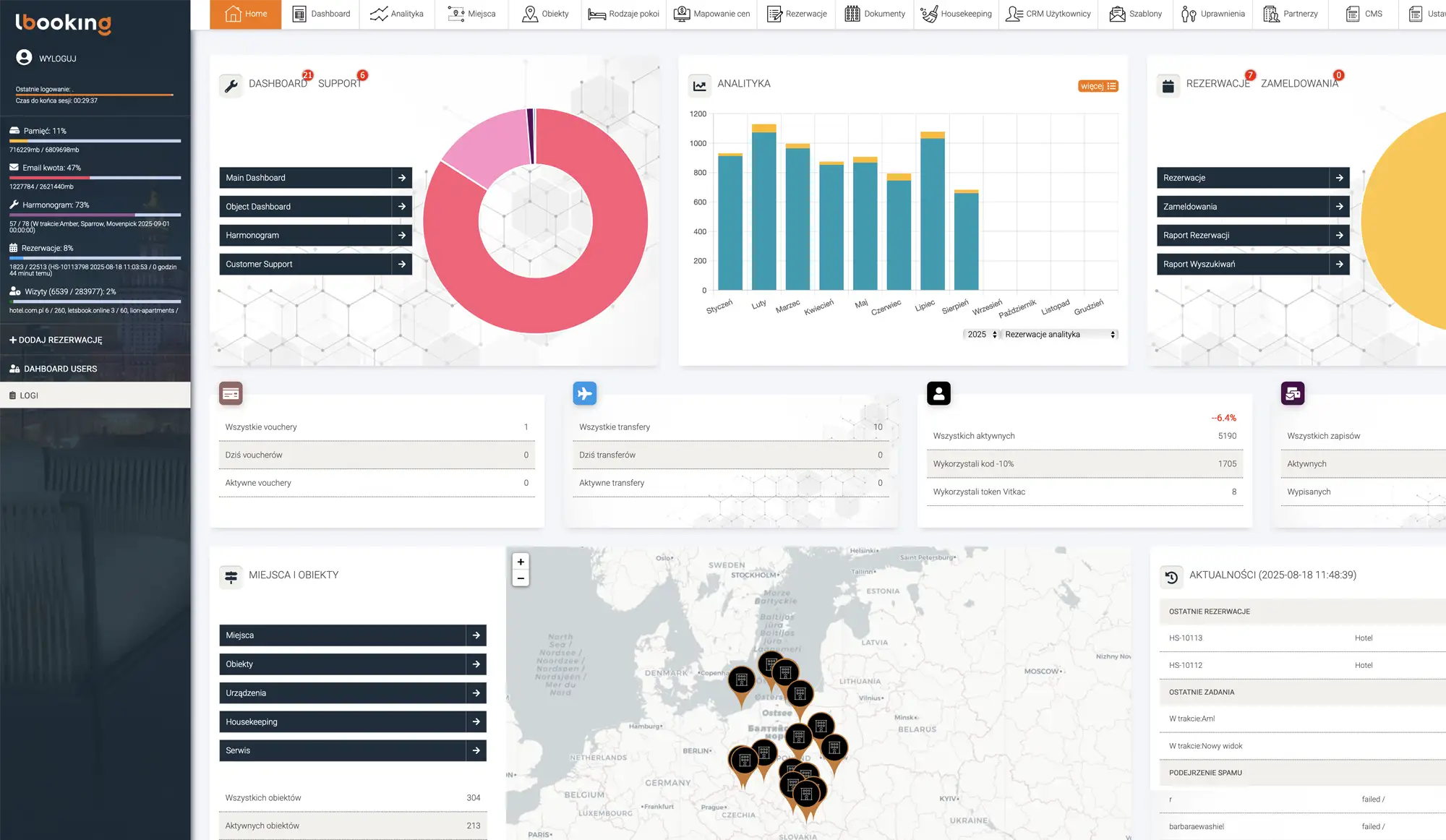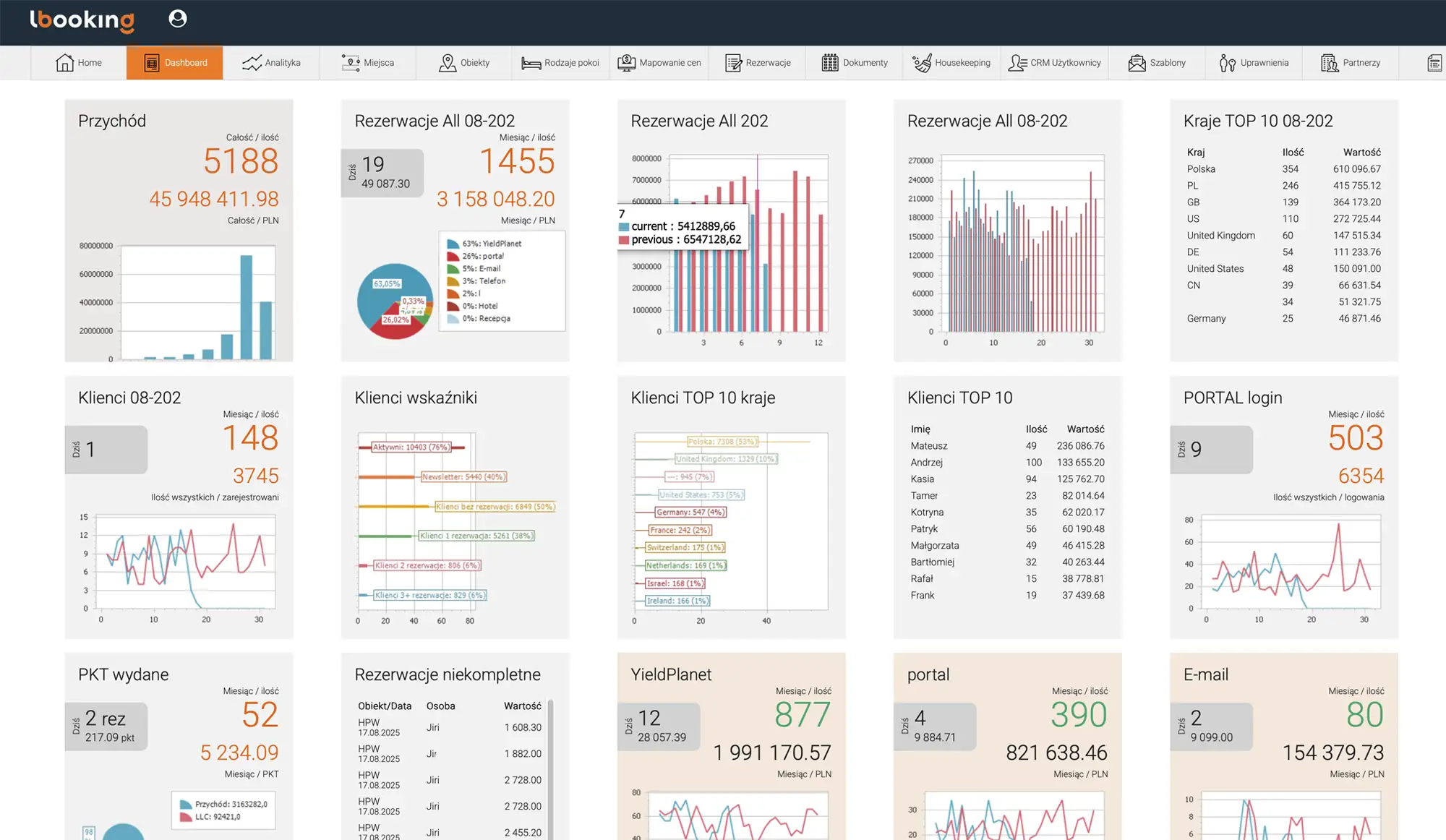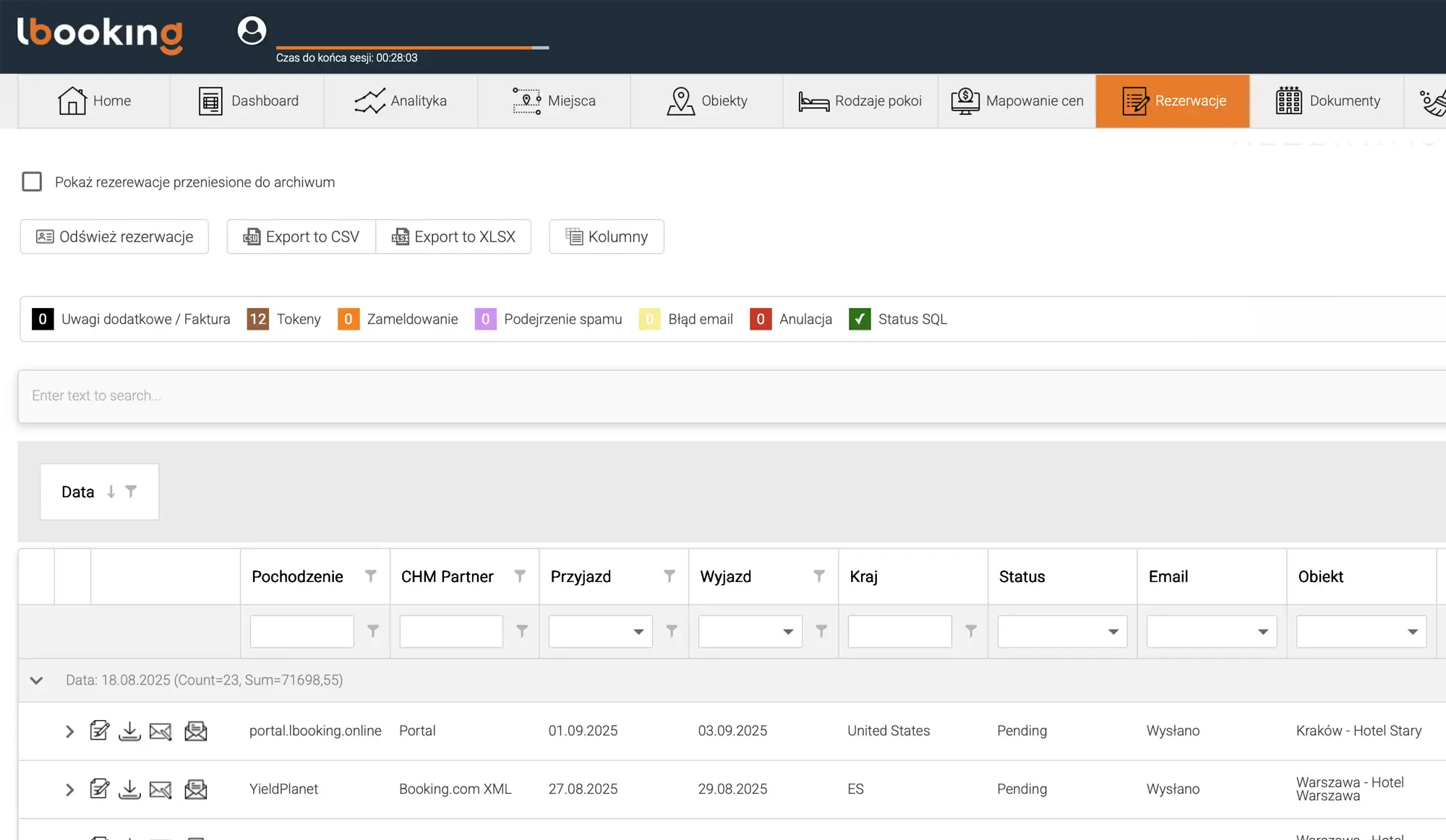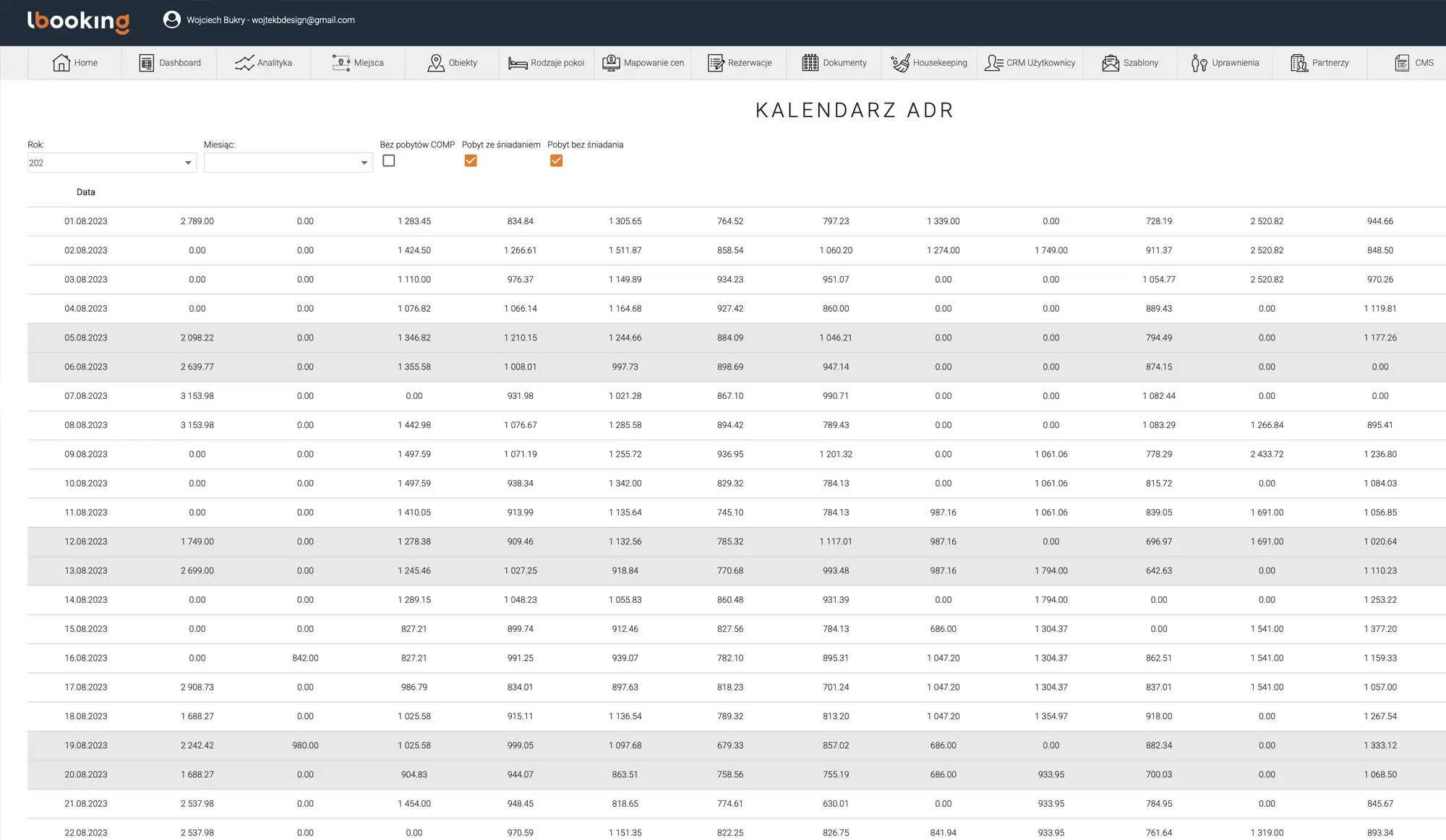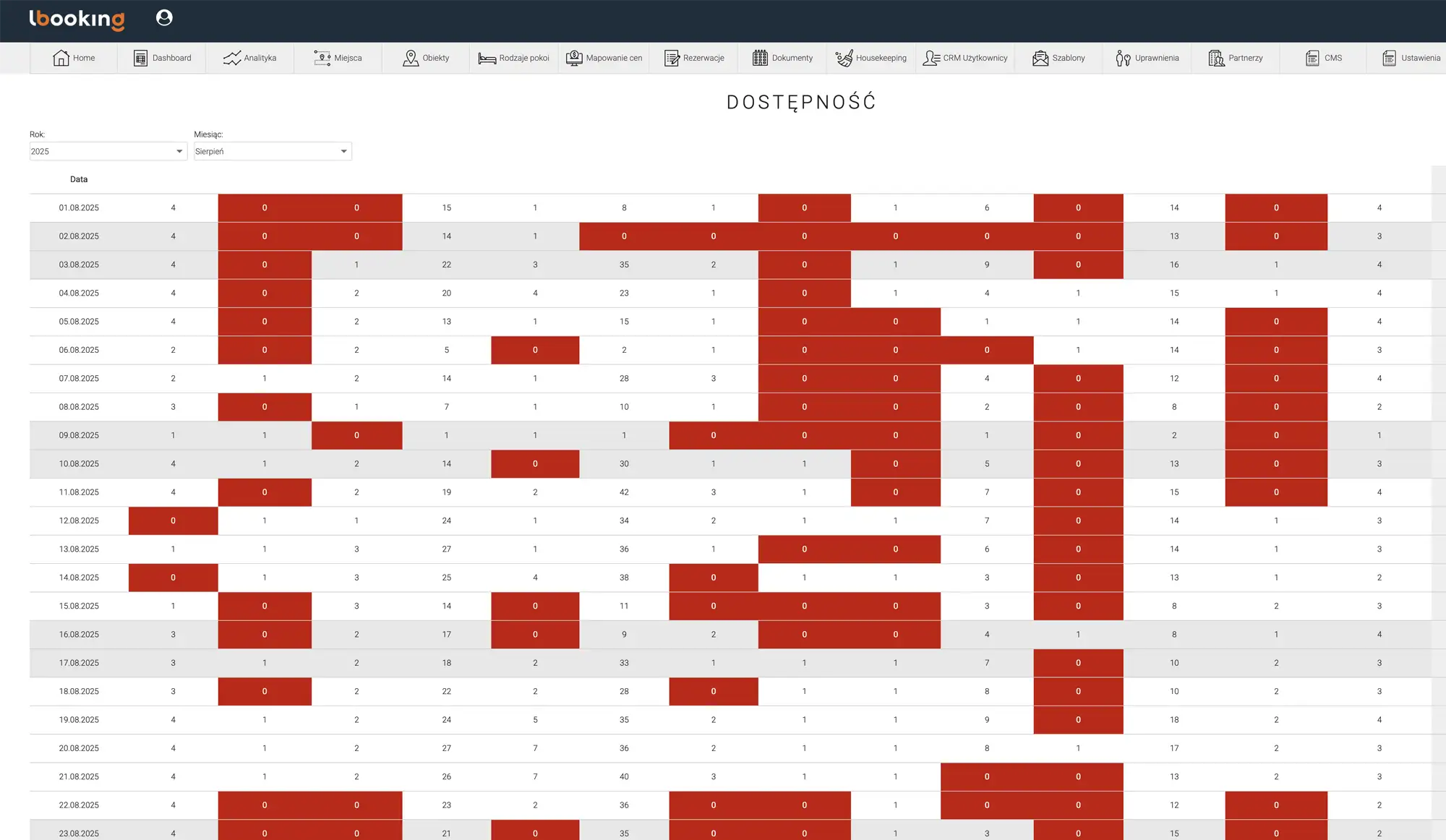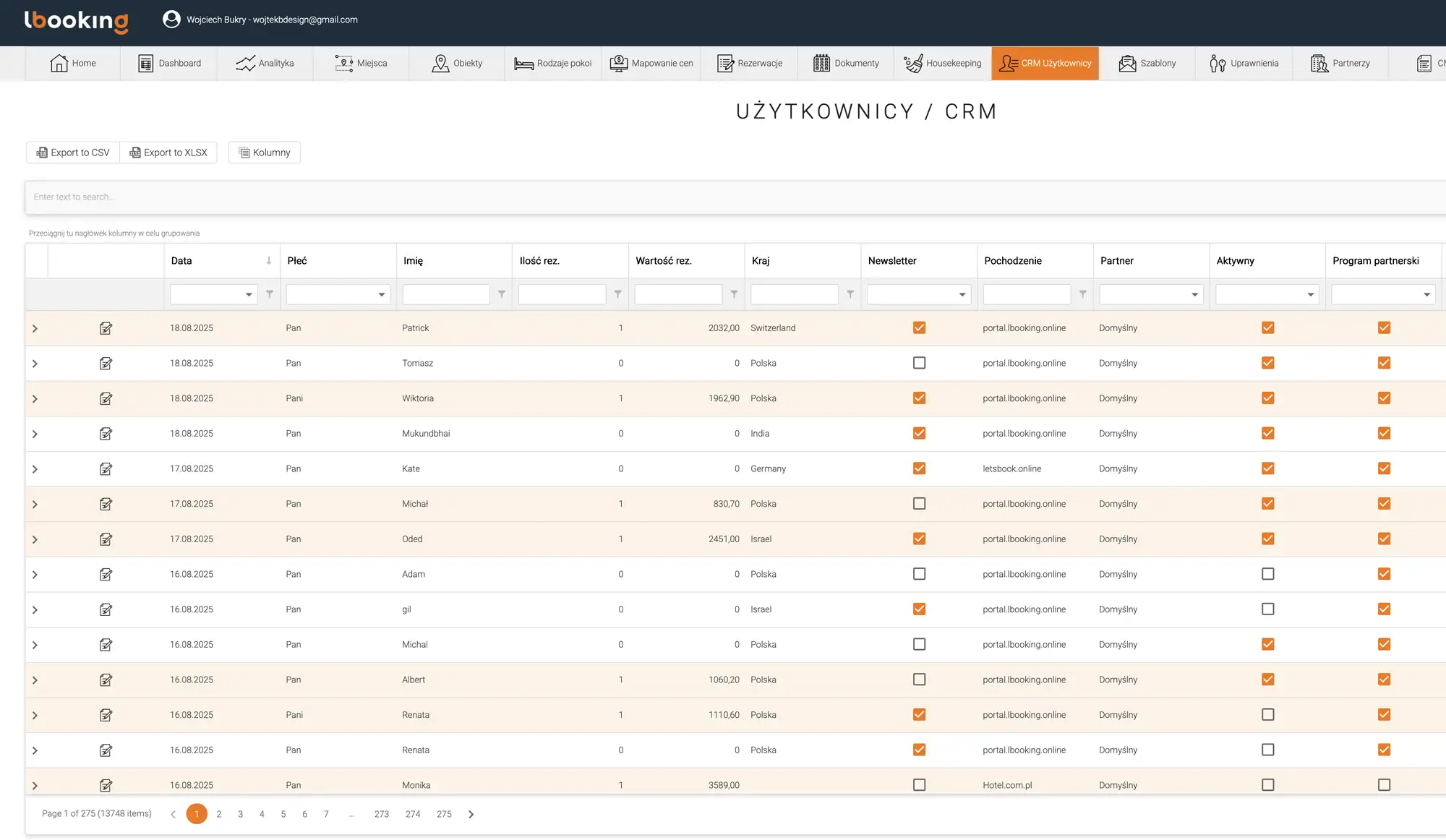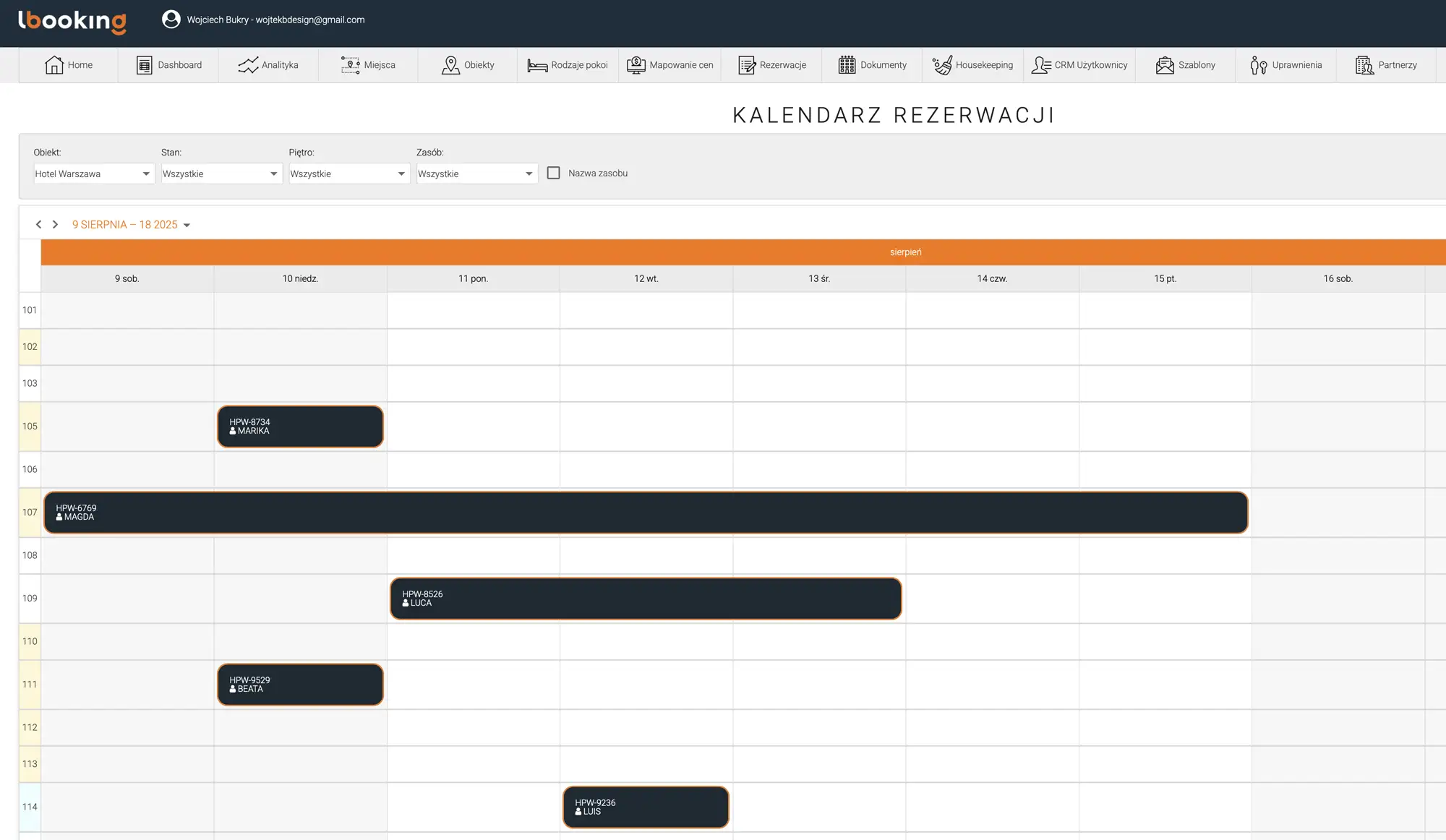Modern Business Management Based on Data from Multiple Operational Areas
Modern businesses operate in a challenging environment where the necessity for quick decision-making, intense competition, and dynamic market changes are a daily reality. To meet these demands, management must rely on detailed analysis of data from various areas of operation. Key aspects of this process include modern sales systems, the integration of activities across multiple branches, the use of cloud technologies, effective pricing strategies, and ensuring data security.
The Importance of Data Analysis in Business Management
Effective management requires skillful data collection, analysis, and utilization. Businesses that leverage data from areas such as sales, logistics, marketing, and customer service can plan their activities more effectively.
1. Better Understanding of Customers
Analyzing consumer preferences and purchasing behaviors enables the personalization of offers, increasing customer loyalty. Detailed data allows companies to create marketing campaigns that better address their audience's needs. It also facilitates effective promotional planning based on actual customer interests.
2. Process Optimization
Accurate data helps identify weak points in the supply chain and work organization. Streamlining operational processes enables a company to operate more efficiently and respond more quickly to market needs. As a result, operational costs can be reduced, and profitability increased.
3. Risk Minimization
Analyzing historical and market data allows companies to identify potential risks, such as changes in demand or competitors' actions. By predicting trends, businesses can implement preventive measures early, minimizing negative impacts on their operations. This approach also reduces the risk of making incorrect investment decisions.
4. Improved Human Resource Management
Data on employee and team performance allows managers to plan training activities accurately. Analysis enables optimal allocation of human resources, increasing team efficiency. It also facilitates identifying and developing talent within the organization.
Modern Sales Systems as the Foundation of Management
1. Integration of Data from Various Sources
Modern systems consolidate data from warehouses, physical stores, e-commerce platforms, and company branches. This integration provides a comprehensive view of sales and logistics processes. As a result, companies gain better control over their operations and can respond more quickly to market changes.
2. Automated Processes
Automation includes inventory management, order fulfillment, invoicing, and reporting. This allows employees to focus on more strategic tasks instead of manual data entry. Automation also increases process accuracy by eliminating human errors.
3. Integration with Financial Systems
Synchronizing sales systems with financial tools enables real-time monitoring of financial liquidity. This allows companies to control operating costs and forecast revenues. Such solutions support financial stability and investment decision-making.
4. Advanced Reporting Features
Modern systems provide advanced reports that allow real-time analysis of sales and market trends. This enables businesses to optimize their marketing activities and better allocate resources. These reports also support long-term strategic planning.
5. Cloud Integration
Cloud-based systems offer flexibility and access to data from any location and device. This allows companies to respond quickly to market changes, even when teams work remotely. The cloud also supports scalability, enabling companies to adjust their IT infrastructure to evolving needs.
Online Sales as a Growth Engine for Business
The growth of online sales is one of the most important development directions for modern companies, allowing them to significantly expand their reach.
1. Integration of E-commerce Platforms with Warehouse Systems
Real-time synchronization of warehouse data with sales platforms prevents errors related to product availability. This ensures that customers receive accurate information about products.
2. Dynamic Pricing Strategies
Analytical tools enable real-time price adjustments, considering seasonality, demand, and competitors' actions. This helps companies maximize revenue and enhance competitiveness. Automating pricing policies also saves time and improves responsiveness to market changes.
3. Omnichannel Customer Service
A seamless shopping experience across online and offline channels builds customer loyalty. Omnichannel solutions include features such as online ordering with in-store pickup, increasing customer convenience. This approach highlights the company's professionalism and modernity.
4. Marketing Campaign Automation
Online sales systems collect customer data, enabling the creation of personalized advertising campaigns. Automating marketing processes enhances efficiency and allows better budget utilization. Personalized offers contribute to higher conversion rates.
5. Secure Customer Data Storage in the Cloud
Cloud solutions provide advanced data protection features, such as encryption and automatic backups. In case of a failure, data can be quickly restored, minimizing downtime. The cloud's scalability allows for easy management of the growing volume of customer data.
Managing Multi-Branch Operations and Warehouse Integration
For businesses with multiple branches, centralized management of data, logistics, and warehouse processes is critical. An efficient approach to multi-branch operations allows for better coordination and optimization of operational costs.
1. Centralized Information
Implementing a single, centralized management system enables effective collection and analysis of data from all branches. This gives managers full visibility into key processes such as sales, inventory levels, and order fulfillment. Centralization also streamlines strategic decision-making by eliminating risks associated with data inconsistencies.
2. Monitoring Inventory Levels
Warehouse integration enables real-time tracking of inventory across different locations, preventing overstocking in one area and shortages in another. Advanced monitoring systems allow companies to automatically transfer goods between branches based on local demand. This approach reduces storage costs and increases product availability.
3. Managing Reverse Logistics
Modern businesses must consider processes related to returns and complaints, which are integral to e-commerce and retail operations. Efficient reverse logistics involves quickly receiving returned goods, assessing their condition, and redistributing them when possible. Streamlining these processes enhances customer satisfaction and minimizes losses.
4. Local Sales Strategies
Analyzing data from different branches enables tailoring sales activities to the specifics of local markets. For instance, a company can implement different promotions, product assortments, or marketing strategies based on local customer preferences. This approach increases the effectiveness of actions and builds stronger relationships with local consumers.
5. Cloud-Based Warehouse Management
Leveraging cloud technologies for managing warehouses and branches allows for real-time data synchronization. Information about inventory levels, orders, and deliveries is accessible from any location, enhancing operational flexibility. Cloud solutions also support system scalability, enabling growth alongside the business.
Data Security as a Priority
In the digital age, data is one of the most valuable resources for any business. Protecting it from unauthorized access or loss is a key challenge for modern organizations.
1. Securing IT Systems
Using advanced technologies such as data encryption, firewalls, and multi-factor authentication minimizes the risk of cyberattacks. Regular software updates and IT infrastructure monitoring enhance resilience to new threats.
2. Regular Security Audits
Conducting audits helps assess the effectiveness of security measures and identify potential system vulnerabilities. Audits cover both technological infrastructure and operational processes, enabling organizations to implement best practices in data protection.
3. Data Redundancy Systems
Creating backups in multiple locations minimizes the risk of data loss in case of failure or attack. Automated cloud backups ensure quick recovery of systems to full functionality.
4. Real-Time Threat Monitoring
Implementing real-time threat detection systems allows for rapid response to potential security incidents. Automated alerts and network traffic analysis help identify unauthorized activities, such as intrusion attempts.
5. Leveraging the Cloud for Data Protection
Cloud solutions offer built-in security mechanisms such as data encryption, DDoS protection, and automatic updates. Data stored in the cloud is also automatically backed up, ensuring availability in the event of a failure.
Building Competitiveness Based on Data
Businesses that skillfully leverage data in decision-making processes gain a significant competitive edge. Business analytics support forecasting market trends, responding more quickly to customer needs, and minimizing risks.
1. Optimizing Operational Costs
Process efficiency analysis helps identify areas where costs can be reduced, such as through process automation or improved inventory management.
2. Collaboration with Partners
Sharing data with trade partners enhances the coordination of activities like supply planning or joint marketing campaigns. This approach strengthens relationships within the supply chain and increases operational efficiency. Data-driven collaboration also fosters innovation across the industry.
3. Maintaining Competitive Pricing
Market and competitor analysis enables dynamic adjustments to pricing strategies in real time. This allows businesses to offer attractive prices while maximizing revenue. Automating this process ensures quick responses to market changes, further strengthening competitive advantage.
4. Scaling Operations with Cloud Solutions
Cloud-based solutions allow companies to flexibly adapt their IT infrastructure to evolving needs. This facilitates opening new branches, expanding online sales, or launching innovative products. Cloud scalability supports business growth without requiring significant capital investments.
5. Personalizing Products and Services
Customer data analysis enables the creation of personalized offers and recommendations that better address customer needs. This approach increases customer satisfaction, leading to higher sales and greater brand loyalty.
Personalization also builds a competitive advantage by differentiating the company from other market players.
Conclusion
Modern business management requires integrating data from various operational areas and leveraging advanced technologies such as ERP systems, cloud solutions, and analytics tools. Developing online sales, managing multi-branch operations, and ensuring data security are the cornerstones of effective operations in a dynamically changing market environment. Companies that invest in modern technologies and effectively harness the potential of data can not only increase their efficiency but also build a lasting competitive advantage.
 * Using our years of experience, innovative solutions, and the knowledge of our team, we provide you with the opportunity to enhance your business potential in terms of effective sales, cost optimization and customer relations. EWOSOFT TECHNOLOGY SOLUTIONS has been operating in the market since 2000, executing prestigious projects both in Poland and abroad. We specialize in creating integrated IT systems for medium and large companies, as well as corporate clients.
* Using our years of experience, innovative solutions, and the knowledge of our team, we provide you with the opportunity to enhance your business potential in terms of effective sales, cost optimization and customer relations. EWOSOFT TECHNOLOGY SOLUTIONS has been operating in the market since 2000, executing prestigious projects both in Poland and abroad. We specialize in creating integrated IT systems for medium and large companies, as well as corporate clients.





























